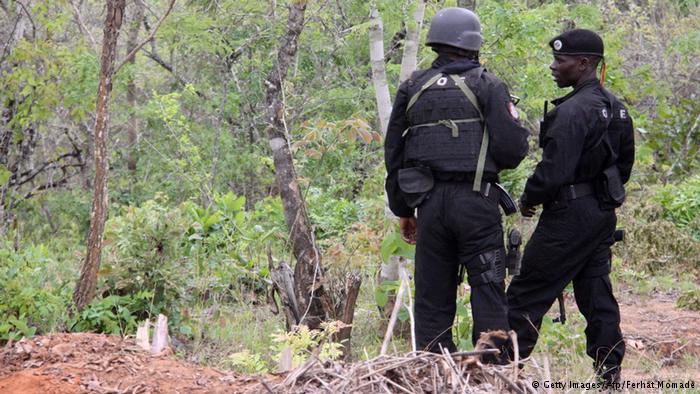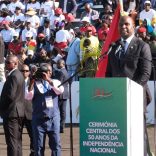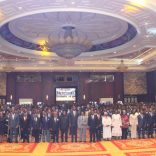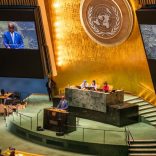Mozambique: Chapo urges Mozambicans to rethink the country
Mediators’ proposal appeals to belligerents’ sense of responsibility – Mozambique

DW / Mozambican security forces in the central province of Sofala
For the second time, the international mediators are leaving Maputo, but not before asking the government and Renamo to reflect on their proposals. To the mind of Mozambican governance expert Silvestre Baessa, the proposals also aim to hold the parties accountable.
On Wednesday (August 24) the international mediators of Mozambican political crisis declared another break, asking of those involved, for example, the presence of international observers in places most liable to witness confrontations, the end of hostilities and the establishment of a demilitarised corridor so they can meet Afonso Dhlakama, the leader of the country’s largest opposition force.
The work of the mediators is to resume on 12 September, until which time a subcommittee will continue to discuss Renamo agenda points.
DW Africa interviewed Silvestre Baessa, a Mozambican expert on good governance on the progress of the negotiations.
DW Africa: Are the mediators’ interregnums normal in processes of this kind?
Silvestre Baessa (SB): Yes, taking into account various aspects, from the way in which they were invited to join this process and the way they [mediators] were organised in a short period of time. People should realise there are six different institutions facilitating the process and they need to understand what separates the parties better. Moreover, during this short period of time, there are legitimate logistical issues for mediation and it is important that they are either undertaken by the mediators or assigned to the warring parties. This is all new; everything is still in the construction phase.

DW Africa: So it means that the warring parties did not do their “homework” properly?
SB: I believe so, and it is now being done during the mediation. If you notice, the mediation teams took some preparation time, and have a very broad knowledge of what separates the parties. And on the basis of that, it seems to me that they were in a position of greater strength and preparedness and had greater legitimacy for bringing the parties closer together. In our case I believe that neither party had actually talked [to the mediators]. Note that the government proposed three players and Renamo also three, but I think there was not much time for Renamo to interact with the parties that it proposed to explain the essence of what it wanted, what it needs from this mediation, and the same is true for the government. So as to expectations that the presence of the mediators would lead to a quick agreement, taking into account the conditions that I have stated, I do not think that we will have a short-term definitive agreement. What we may have is some concessions, such as a possible ceasefire, but a final agreement will still take some time, many of these difficulties not having been overcome.

DW Africa: By the nature of the proposals made by the mediators, such as the presence of observers in trouble spots, may it be concluded that the mediators are trying to assign some responsibility to the belligerents?
SB: No doubt. It is not the mediators who make peace; it is up to the parties to the conflict to make peace. Mediators play an important role, opening paths and windows of opportunity that are not yet sufficiently developed to reach peace. And I believe that’s what the mediators are saying: that they are not here to say who is right. There must also be good will and a great effort on the part of both parties for a good agreement to be reached.












Leave a Reply
Be the First to Comment!
You must be logged in to post a comment.
You must be logged in to post a comment.